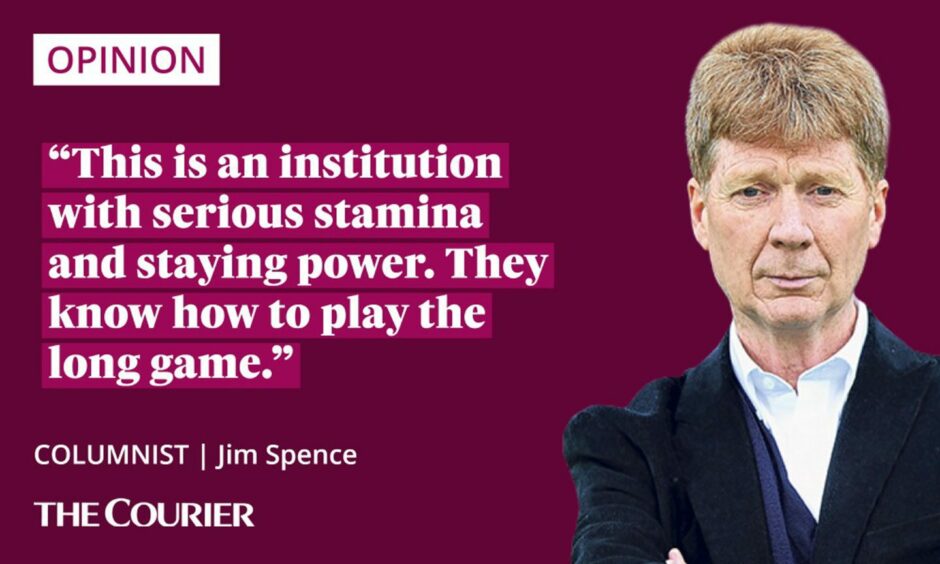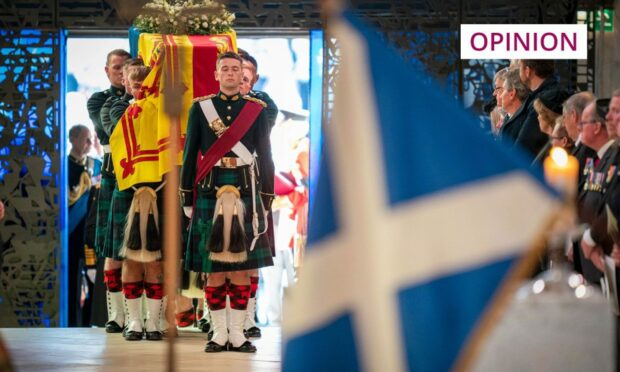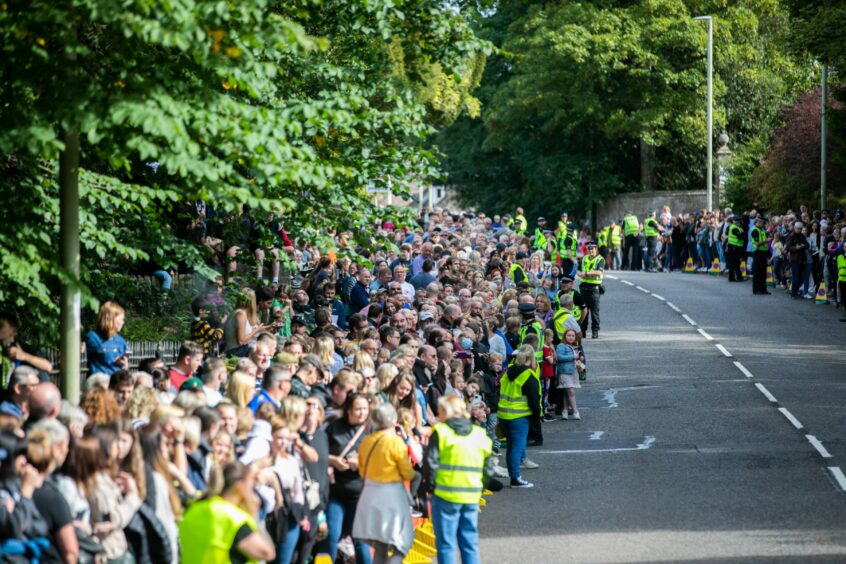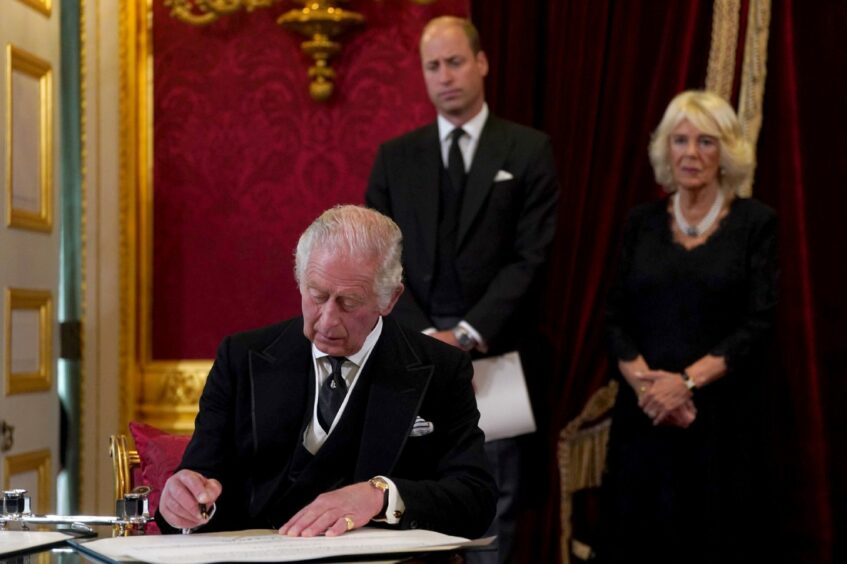The royal family will be with us for a long time to come.
That’s my view after seeing the big turnouts to watch the Queen’s funeral cortege.
I think folk went along to see it for many reasons:
Some were royalists. Some simply wanted to show respects to an old woman who may have reminded them of the frailties of a mum or a granny.
And some were there because history was being made.
There may now be a King on the throne – and that will take getting used to after the 70 year reign of his mother – but Charles and his successors are under no threat.

I’m no fan of monarchy and agree with republicans that it’s an anachronism in today’s world.
There’s something bizarre about an accident of birth endowing great wealth, prestige, and power, on individuals who are no different from you and me.
However, such accidents of birth also bestow wealth and prestige on plenty of others in society.
And the blunt truth is that there’s been no threat by any mainstream political party to the continued existence of the royals.
They may talk about slimming them down. And there’s chatter that Charles himself will trim the fat of some royal hangers on.
But even with my political leanings I’ve concluded that the institution can’t be described as anti-democratic when democratically elected governments have had countless opportunities to dispense with monarchy, and haven’t.
Royal family is part of the hierarchy, in Scotland and beyond
After a lifetime in various jobs and occupations and mingling with a wide spectrum of humanity, I’m drawn to the belief that most people not only accept but are reassured by hierarchy.
And there are few things more hierarchical than the House of Windsor.
In our employment, our institutions, and in our own families and relationships, there are structures we accept in our daily lives.
Even anarchists need someone to organise their protests.
None of that means I’m a convert to the concept of monarchy.
Indeed along with five million others in the UK I was firmly put in my place when the new King swore as all new British monarchs do to uphold and preserve the Protestant faith.
Catholics like me, along with Muslims, Hindus, Jews, Sikhs, atheists and agnostics, were firmly reminded of where we sit in the hierarchy. And it’s a few notches down the pecking order.
But that actually doesn’t bother me any more.
In reality it’s all constitutional protocol and guff. Albeit that among the groups I mentioned it’s only Catholics who are debarred from becoming King or Queen.
SNP would retain the royal family
Tradition and modernity are the symbiotic elements which the royals balance brilliantly.
Young and old alike appear fascinated by them.
This is an institution with serious stamina and staying power.
They know how to play the long game.
Their many crises and dramas have been well played out on the public stage but they’ve survived them all.
And with a slick public relations team they’ve been sure-footed in emerging even stronger than before.
We’re told Scots are less keen on the royal family than the English. But the SNP would keep them as heads of a new Scottish state.
And the Danes, Norwegians, and Swedes, who many nationalists think we should emulate, all have monarchies.
Some nationalists may have been angered watching Nicola Sturgeon swear loyalty to Charles and singing God Save the King.
But her position on the royal family, in the event of Scotland becoming independent, has long been clear.
The House of Windsor has withstood various tremors, which its critics predicted would see it crumble.
But it will still be standing rock solid in a hundred years from now.














Conversation